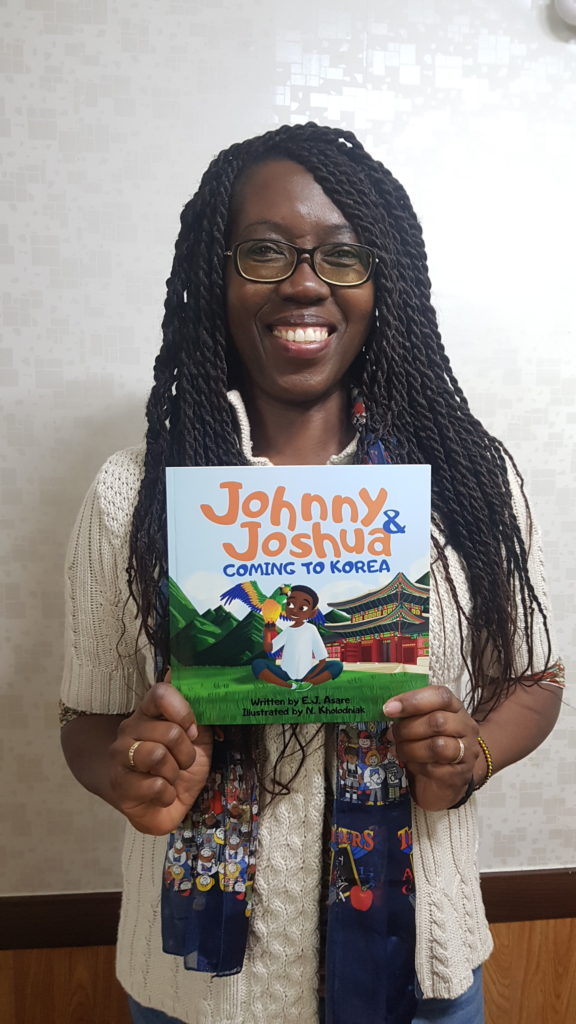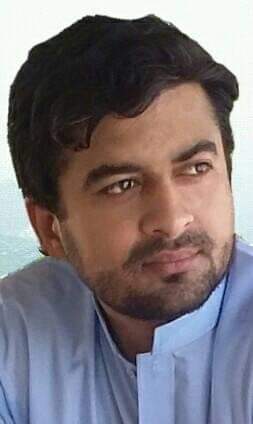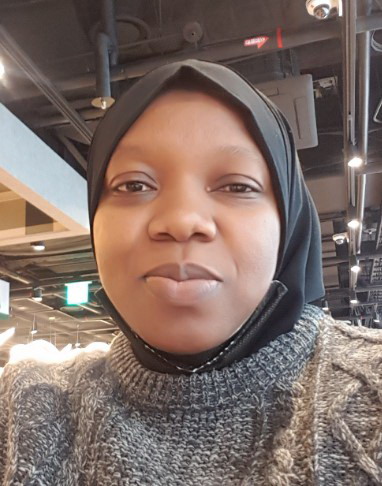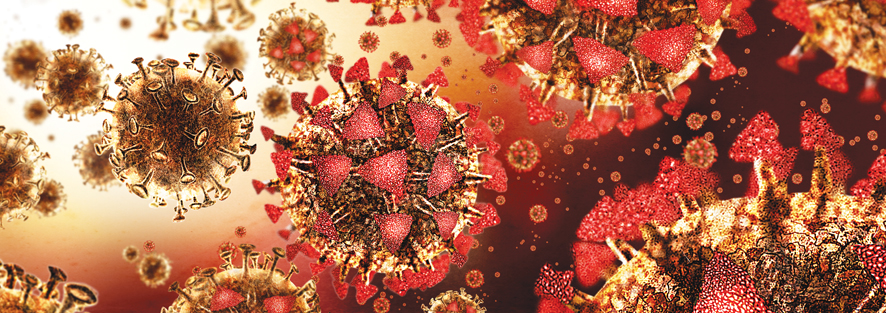Gwangju-Jeonnam Voices: Coronavirus Version
Interview by William Urbanski.
While there is without question a veritable deluge of media coverage surrounding the coronavirus situation worldwide, most of this information takes a bird’s-eye view. The Gwangju News felt it was important to hear from individuals in our community about how this ongoing situation is impacting their lives. Many thanks to the five individuals from Gwangju and around Jeollanam-do who took the time to answer the following four questions:
1. How has the coronavirus affected your professional and personal life? Have there been plans you have had to
change or trips you have had to cancel?
2. How do you feel about Korea’s response to the coronavirus outbreak? Do you think it is reasonable or is it too
much?
3. Have any of your family members back home been concerned? If so, what do you tell them?
4. What precautions are you taking to protect yourself against the coronavirus?

EJ Asare who has been here for over six years, and is an American, works in Suncheon as a public elementary school teacher. EJ’s responses follow:
1. I had professional plans to promote my English language children’s picture book (Johnny and Joshua Coming to Korea, available on Amazon) at festivals this spring, and that has been cancelled. Korea has so many wonderful festivals, and I was going to be a vendor at several events, but because of the virus and social distancing, that will not happen this year. But on a personal level, I have followed all instructions from the Korean government. I stayed home for two weeks after traveling back from the U.S. Personally, I had to stop watching the 24-hour news stations. Now, I check in twice a day to see what is going on and just live my life.
2. I am thankful to the Korean government for their diligent response. Their actions are not excessive. It shows real concern for the citizens and the businesses that are all being impacted. I teach elementary school and want all of my students to be safe, so if delaying school will keep our kids safe, so be it. This virus situation is having a devastating impact on Korea’s economy. There are many people, including teachers, who are not being paid and have to decide whether to stay in Korea or go home. There are business owners, mom-and-pop places, that cannot make rent because people are staying home to eat. The buses and airplanes are empty and losing money. There is a devastating economic and emotional impact on everyone. I really hope this situation is resolved soon.
3. My family is very concerned because they are watching the U.S. news. But I tell them all of the things the Korean government is doing. All the testing, the drive-thru options, making masks available to everyone through the post office, sanitizing the streets, taking temperatures before entering business offices, putting sanitizer on all the buses and subways, etc. Because the Korean government is proactive and diligent, my family knows that I am in a safer situation here.
4. I practice social distancing, wear my masks outside, only leave my house for work and grocery shopping, and continue to wash my hands. I am being careful, but I am no longer in a panic like I was a few weeks ago, when the number of cases started increasing rapidly. Now, I am cautious but fine. I refuse to live in fear.

Saleem Ahmad is from Pakistan and has been in Gwangju for almost two years. He is a PhD student in public health (epidemiology) in the College of Veterinary Sciences at Chonnam National University.
1. COVID-19 has affected normal life routines all over the world, such as visiting public places, transportation, and trade. For myself, COVID-19 has not affected my personal life too much, but my professional life has been affected considerably because we were going to start our epidemiological studies in March at Jeollanam-do poultry farms, which have been suspended till the situation gets back to normal.
2. As far as South Korea is concerned, the way the country is handling the virus outbreak is outstanding and is a role model for the rest of the world for any threatening situation in the future. COVID-19 has been declared a pandemic threat by WHO (the World Health Organization), so I think what South Korea is doing day and night through hard work and dedicating funds to fight the virus is reasonable, because such a rapid outbreak can destroy a country’s economy, as well as prosperity overall. So, we should pay respect to the South Korean government and all the medical professionals around the world for their tremendous performance, not only in Asia but in Europe also.
3. My family members back in Pakistan are satisfied with South Korea as “a hardworking and outstanding country.”
4. I personally must cooperate with the South Korean government, and what I am doing to protect myself and the community, I would like to share with my South Korean brothers and sisters, as well as foreigners:
- I always use a face mask nowadays. I use one mask as long as feasible. That is how we can cooperate with the government to avoid a shortage of face masks.
- I always keep a small disinfectant spray at hand to disinfect an area I need to touch.
- I avoid touching my face, especially before disinfecting my hands after having been outside.
- In case of visits to public places, I wash my clothes and take a shower at home after attending
such spaces.

Aisha Okatahi Abdullahi is from Nigeria and has been in Korea for over a year.
1. Well, I just got a job offer but haven’t started due to the outbreak. Personally, it’s affected our social life. The kids and I do go out for outdoor activities, but all that’s been on hold due to the epidemic. We’ve been indoors. The kids aren’t going to school anymore and it’s been crazy, but it also gives us time to bond together.
2. I think the Korean government has done pretty well in combating the spread of the virus. The way they disseminate information about ways to protect oneself and all that is commendable.
3. My family back home have been really worried about our safety over here, but we assure them that the government is doing its best in keeping everyone safe.
4. I stay indoors as much as possible. I only go out when it’s pretty necessary, using my face mask of course, washing my hands often, and using hand sanitizer when I enter public transport. Also, I avoid crowded areas when going out with my kids. They’ve been wanting to go out anyway. I sincerely hope that a cure is found sooner than expected, and that the victims are cured with no more deaths.

Patrick Michael Whittier is from Georgia in the U.S. He has been in Korea for eight years and will be leaving when his current contract ends in June. He works for the Jeollanam-do Language Program (JLP) in Gokseong County.
1. The coronavirus hasn’t affected any travel plans because I didn’t have any trips planned after the virus made it to Korea. Before I signed my current contract, I negotiated to take my winter vacation early and went to the U.S. in December. I returned to work in January. I haven’t seen a student since December 20, and that makes me sad because I really enjoy working with my students. I haven’t had to cancel any plans, but I also haven’t been able to make any because all my friends have been in self-quarantine. JLP made it so that any of their teachers, regardless of which countries they visited over winter vacation, had to self quarantine for two weeks upon returning. (I didn’t have to do this because I traveled before the mandate.) I always use a face mask nowadays. I use one mask as long as feasible. That is how we can cooperate with the government to avoid a shortage of face masks.
I always keep a small disinfectant spray at hand to disinfect an area I need to touch. I avoid touching my face, especially before disinfecting my hands after having been outside. In case of visits to public places, I wash my clothes and take a shower at home after attending such spaces.
2.I think that Korea’s response is both remarkable and over the top at times. I get no less than four extreme emergency alerts each day, reminding me of things that have already been sent in messages from the previous day. I think that 75 percent of these messages are unnecessary and a waste of the emergency alert system. As for testing and treating, I think they’ve done a fantastic job with that. Another thing I don’t understand is the lack of travel restrictions. This illness is apparently contagious even before symptoms appear, and yet Korea didn’t restrict travel for visitors to Korea. However, when others did so to Korea, they became quite furious. To me, it seems like the government should’ve done more in this area. Lastly, I do see everyone wearing masks, but they’re usually down around their chins. I’ve also seen so many people remove them to spit. I’m worried that a lot of the things that people are doing to appear safe are just that, only for appearances.
3. I haven’t been contacted by anyone back home except my sister, who sent a short email to ask me what I thought about it. I think the media back in the U.S. is doing a pretty good job of making this into an extreme crisis for them, so I guess they don’t have the energy left to worry about anything else right now.
4. I’ve been ordering more online and shopping in stores less in order to avoid crowds. I’ve been staying outside of the bigger cities and doing activities (like hiking) in the mountains in order to get out of the house but without increasing my chances of getting sick (from any illness, not just the coronavirus. I don’t want the flu, either). Since I don’t have many more masks, I’m saving the ones I do have for when the students return. Again, it’s not about preventing the coronavirus specifically, but preventing any illness. Before school ended last year, six homerooms teachers were out with the flu. Students come to school even when they’re sick, so it’ll be interesting to see if that behavior changes when the students return.

Brian McClure is from the U.S. and has been in Korea off and on since 1996. He works at an elementary school.
1. It was strange timing because I had a bad cold this winter. On the one hand, the school was closed, so I didn’t just work through the illness like I usually do. But I was afraid to go to the hospital. Finally, I went to Chonnam University Hospital. They immediately sent me outside to a makeshift lab to be tested for the coronavirus. The test was negative. I was able to get care at a hospital the next day. Also, I had to cancel the private lessons that I do in my house.
2. I was in China during SARS, and I remember having to get around roadblocks to make it to the airport. Korea’s response is not as drastic as that. I think Koreans are becoming well informed about the virus, and this is working to slow the spread.
3. My son went to the U.S. this winter and got back before the virus escalated. My family at that time was not concerned at all about the coronavirus. But now my brother is emailing me that his school may be closing and asking about what’s going on. When I told them about my cold, my family thought the hospitals here dealt with it well.
4. I have a mindset about going out into public places. I wear a mask as to not touch my face. When I come back inside, I wash my hands immediately. With this mindset, I feel fairly safe. My wife hangs the masks up by a window, and we reuse them each week. But, I don’t know what I’ll do when classes start again. That will feel like being in a public place all the time.
THE AUTHOR
William Urbanski, managing editor of the Gwangju News, has an MA in international relations and cultural diplomacy. His preferred appellative is not bro. Instagram: @will_il_gatto





